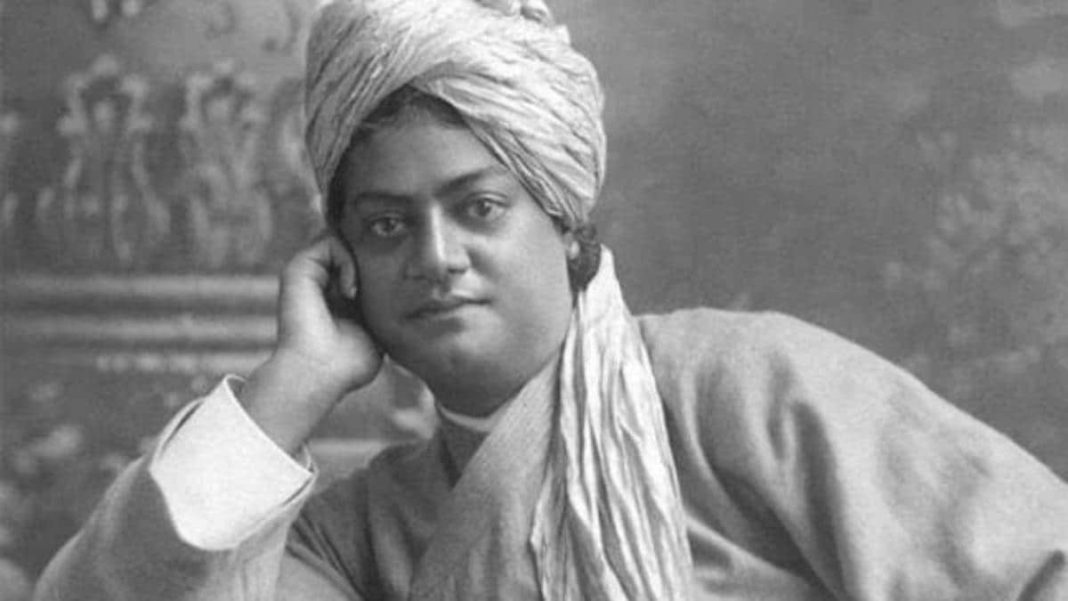Education is the foundation of progress and prosperity for any society. Swami Vivekananda, a renowned Indian philosopher and spiritual leader, emphasized the importance of education in shaping individuals and societies. He believed that education should not be confined to the mere acquisition of knowledge, but should be directed towards the holistic development of an individual’s physical, intellectual, and spiritual dimensions. In this article, we will explore Swami Vivekananda’s definition of education and its relevance in today’s world.
Table of contents
Some of the Definitions of Education by Swami Vivekananda
Swami Vivekananda believed that education should not be confined to the mere acquisition of knowledge, but should be directed towards the holistic development of an individual’s physical, intellectual, and spiritual dimensions. Here are some of Swami Vivekananda’s definitions of education:
- Education is the manifestation of perfection already in man. According to Swami Vivekananda, education is not just about acquiring knowledge but about bringing out the best in individuals. He believed that education should help individuals discover their true potential and realize their innate abilities.
- Education is the process by which character is formed, strength of mind is increased, and intellect is sharpened. Swami Vivekananda believed that education should focus on character building, intellectual development, and spiritual growth. He believed that education should enable individuals to develop virtues such as discipline, compassion, and selflessness.
- Education is not the amount of information that is put into your brain and runs riot there, undigested, all your life. Swami Vivekananda believed that education should enable individuals to acquire knowledge that would enable them to lead successful lives. However, he was also critical of the narrow focus of modern education on technical and vocational skills. He believed that education should aim to develop a broad range of intellectual abilities, including critical thinking, creativity, and problem-solving.
- Education is the drawing out of the best in man – body, mind, and spirit. Swami Vivekananda believed that education should focus on the holistic development of an individual’s physical, intellectual, and spiritual dimensions. He believed that education should enable individuals to cultivate a sense of responsibility towards society and the environment.
- Swami Vivekananda’s definition of education emphasizes the importance of holistic development. He believed that education should focus on character building, intellectual development, spiritual growth, social reform, and self-realization. His ideas about education are relevant today as they were during his lifetime.
Read about Philosophy of Education of Swami Vivekananda
Education as a Means of Character Building
Swami Vivekananda believed that education should focus on character building rather than the accumulation of facts and figures. According to him, the purpose of education should be to help individuals develop virtues such as discipline, compassion, and selflessness. He believed that education should enable individuals to cultivate a sense of responsibility towards society and the environment.
Education as an Instrument of Knowledge
Swami Vivekananda believed that education should enable individuals to acquire knowledge that would enable them to lead successful lives. However, he was also critical of the narrow focus of modern education on technical and vocational skills. He believed that education should aim to develop a broad range of intellectual abilities, including critical thinking, creativity, and problem-solving.
Education as a Path to Spiritual Development
Swami Vivekananda emphasized the importance of spiritual development in education. He believed that education should help individuals to discover their true selves and their connection to the universe. He believed that education should cultivate a sense of awe and wonder about the mysteries of life and the universe.
Education as a Tool for Social Reform
Swami Vivekananda believed that education should be used as a tool for social reform. He believed that education should enable individuals to challenge the status quo and work towards creating a more just and equitable society. He believed that education should enable individuals to develop a sense of empathy and compassion towards those who are less fortunate.
Education as a Means of Self-realization
Swami Vivekananda believed that education should enable individuals to realize their full potential. He believed that education should help individuals to discover their true passions and talents and provide them with the necessary skills and knowledge to pursue them. He believed that education should enable individuals to become self-reliant and self-sufficient.
Conclusion
Swami Vivekananda’s definition of education emphasizes the importance of holistic development. He believed that education should focus on character building, intellectual development, spiritual growth, social reform, and self-realization. His ideas about education are relevant today as they were during his lifetime. As we continue to grapple with the challenges of modern society, Swami Vivekananda’s vision of education provides us with a roadmap for creating a more just and equitable world.
Bibliography
- Vivekananda, Swami. “Education.” In The Complete Works of Swami Vivekananda, Vol. 2, 271-75. Kolkata: Advaita Ashrama, 1997.
- Sen, Amartya. The Argumentative Indian: Writings on Indian History, Culture and Identity. New York: Farrar, Straus and Giroux, 2005.
- Radhakrishnan, S. The Philosophy of Swami Vivekananda. New Delhi: HarperCollins Publishers India, 1992.
- Vivekananda, Swami. (2011). The Complete Works of Swami Vivekananda. Advaita Ashrama.
- Sharma, R. N. (1997). Swami Vivekananda’s concept of education. Concept Publishing Company.
- Vivekananda, Swami. (2003). Education according to Swami Vivekananda. Advaita Ashrama.
- Chakravarty, S. (1994). Education in the vision of Swami Vivekananda. Sri Ramakrishna Math.
- Bhattacharyya, R. (2012). Swami Vivekananda and education for character development. Journal of Education and Practice, 3(2), 24-29.



 For all latest articles, follow on Google News
For all latest articles, follow on Google News